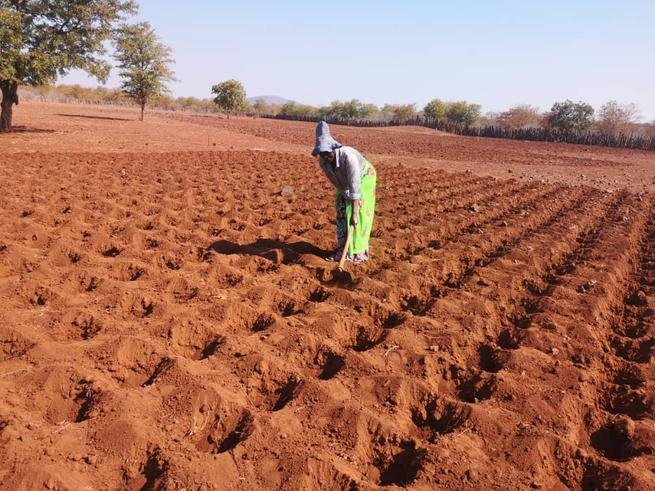By Pretty Chavango
Farming seasons in Zimbabwe have significantly shifted due to the impact of climate change with the country’s Meteorological Department urging farmers to hold off planting as the rains recently experienced in different parts of the country did not indicate the start of the farming season.
“The Meteorological Services Department advises that this is not the start of the rainy season. We advise farmers to use these rains to speed up land preparation (holing for Pfumvudza / Intwasa & accelerating tillage for those practicing conventional farming,” said permanent secretary in the Ministry of Lands, Agriculture, Fisheries, Water and Rural Development Obert Jiri.
The country is targeting 250 00 hectares, Sorghum, 126 577 ha pearl millet under the Pfumvudza distribution currently underway in provinces as farmers gear up for the 2023-24 farming season.
Small grain crops are becoming more popular as farmers adjust to the climate reality currently characterised by high temperatures and erratic rainfall.
Deputy Minister of Lands and Vangelis Peter Haritatos urged farmers to take up production of small grains.
“Our Traditional Grain Policy has been and still is advocating for the production of traditional grains such finger millet, Pearl Millet, sorghum, cow peas in Zimbabwe. This comes against a backdrop of climate change and variability which has affected all countries globally..
“Our Ministry has been mandated to make sure that communities build resilience through adoption of Climate-smart technologies and production of traditional grains is one of the many climate smart technologies which Zimbabwe has adopted.”
Hon Haritatos added that the government has brought a program coined the “grain swop program.” where one can bring the grain that they have in excess for the grain that they may desire at that time.
Under the Climate-Proofed Presidential Input Scheme Pfumvudza/Intwasa, the Government plans to assist 3,5 million smallholder farmers countrywide with free inputs to ensure household and national food security. The process has however been marred by corruption with over 90 tonnes of fertiliser being reportedly recovered after having been diverted to the black market.
The scheme which is meant to assist farmers is said to have currently taken up ZW$828 billion from the 2023 National Budget.

